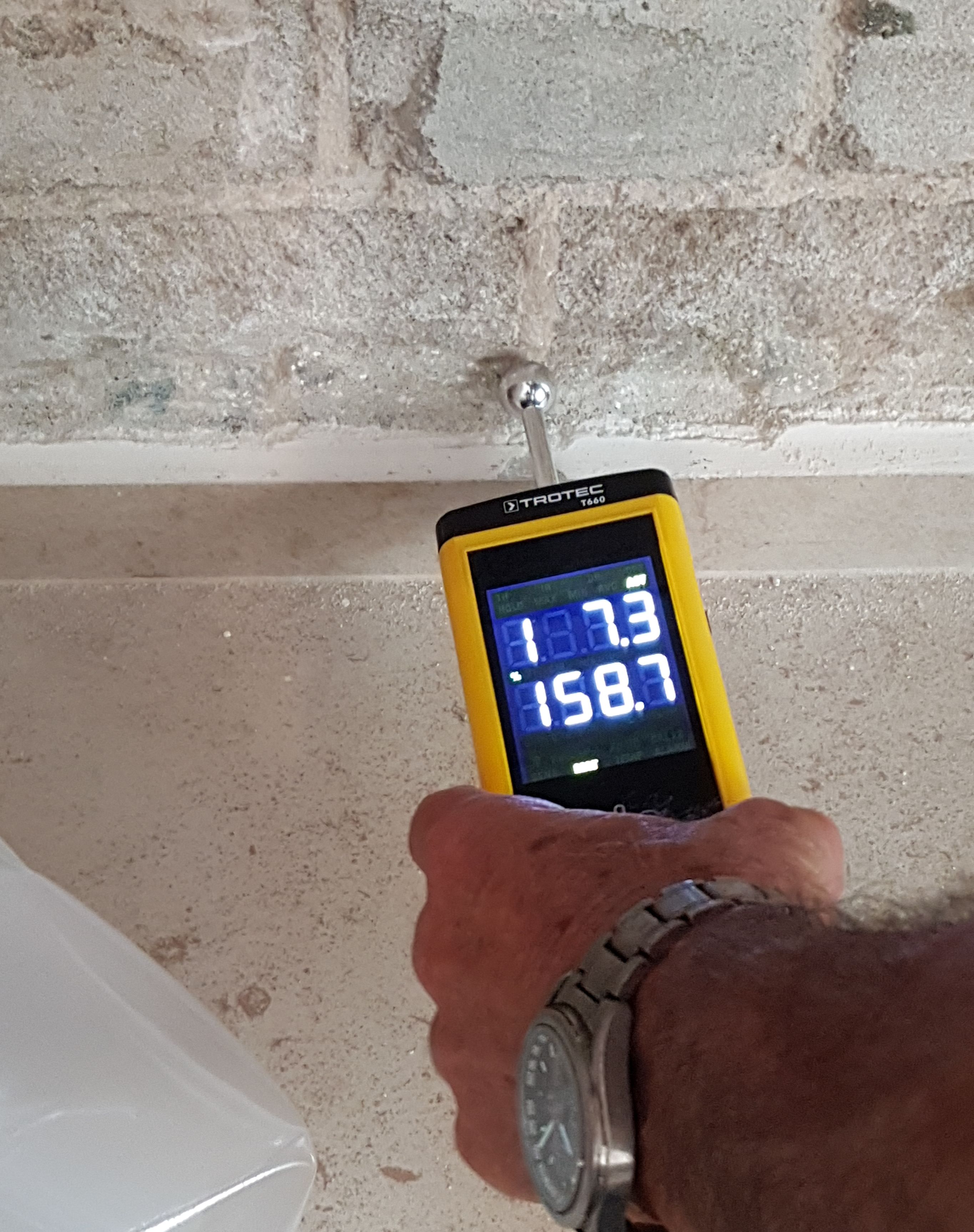The Ultimate Overview to Wetness Meters: A Comprehensive Summary and How They Can Conserve You Money
In the realm of structure upkeep, building, and various sectors, the significance of accurately gauging wetness levels can not be overemphasized. Moisture meters act as vital tools in spotting and monitoring moisture material in materials, helping in preventing pricey damages and ensuring the top quality of products. Comprehending the nuances of different sorts of moisture meters, their applications, and the prospective cost-saving advantages they offer can be a game-changer for professionals and organizations alike. Finding just how these devices can not only simplify processes yet likewise add to financial savings is a trip worth embarking on.
Types of Wetness Meters
Various sorts of moisture meters are offered for various applications in different sectors. One typical kind is the pin-type dampness meter, which gauges the electrical resistance between two pins inserted right into a material. This type is suitable for wood, drywall, and other building products. Pinless moisture meters, on the other hand, use electromagnetic sensor plates to scan a larger area without triggering damage to the material's surface. Moisture Meter. These meters are optimal for swiftly examining dampness degrees in big areas such as walls and floors.

Infrared wetness meters measure the thermal buildings of a product to identify its dampness web content non-invasively, making them helpful for applications where pin or pinless meters might not be suitable. Comprehending the different kinds of moisture meters offered can assist sectors choose the most appropriate device for their details moisture measurement requirements.

Benefits of Making Use Of Moisture Meters
Moisture meters provide vital benefits in precisely evaluating and keeping an eye on moisture levels in varied products and atmospheres. One of the primary advantages of utilizing wetness meters is the prevention of possible damages triggered by excess moisture.
In addition, using wetness meters can lead to increased energy performance. In agricultural setups, dampness meters play an important duty in enhancing plant returns by enabling farmers to check soil wetness degrees and make informed irrigation decisions.
Just How to Pick the Right Wetness Meter
When choosing a moisture meter, it's crucial to make certain that the meter is appropriate for the particular product you will certainly be screening. Different materials have differing electrical homes that can affect dampness readings, so selecting a meter made for your product is essential for exact results. By carefully reviewing these aspects, you can select a dampness meter that satisfies your needs and supplies accurate wetness measurements for your tasks.
Appropriate Techniques for Wetness Meter Use

Price Cost Savings With Wetness Meter Applications
Exactly how can the tactical utilization of dampness meters cause considerable cost financial savings throughout different markets? Moisture meters play an important role in price financial savings by avoiding potential damages and making sure quality assurance in different fields. In the farming sector, wetness meters aid in determining the optimum time for gathering crops, protecting against excess or over-drying wetness that can influence the end product's high quality. This accurate surveillance assists farmers avoid unneeded losses and maximize their return.
Similarly, in building, moisture meters assist prevent expensive problems by finding moisture levels in structure products, such as wood or concrete, which can continue reading this bring about structural problems otherwise over at this website addressed quickly. By recognizing problem locations beforehand, professionals can take rehabilitative measures to avoid substantial fixings or replacements, eventually conserving money and time.
Furthermore, in the food processing market, wetness meters are crucial for keeping track of product high quality and making sure compliance with safety and security laws. By accurately measuring wetness material in foodstuff, makers can protect against perishing, maintain freshness, and decrease waste, leading to considerable expense savings. In general, the calculated application of wetness meters is a useful financial investment that can bring about significant price decreases and enhanced effectiveness across different sectors.
Final Thought
To conclude, moisture meters are valuable devices for gauging and identifying wetness levels in various products. By making use of the ideal wetness meter and complying with proper strategies, customers address can properly protect against expensive problems created by excess wetness. Purchasing a quality dampness meter can result in substantial cost savings in the long run by identifying possible problems at an early stage and enabling timely remediation. Inevitably, wetness meters are vital instruments for keeping the stability and long life of frameworks and materials.
Wetness meters offer as vital devices in discovering and keeping track of moisture web content in materials, helping in protecting against costly problems and making certain the quality of items. Infrared dampness meters measure the thermal properties of a material to identify its dampness content non-invasively, making them helpful for applications where pin or pinless meters might not be ideal.Dampness meters provide vital benefits in accurately checking and assessing wetness degrees in varied products and settings. In farming setups, moisture meters play an essential function in enhancing plant returns by enabling farmers to keep an eye on dirt dampness degrees and make educated watering choices.In verdict, dampness meters are useful devices for measuring and spotting moisture levels in various materials.
Comments on “The Science Behind Moisture Meters: Exactly How They Function and Why They're Vital”